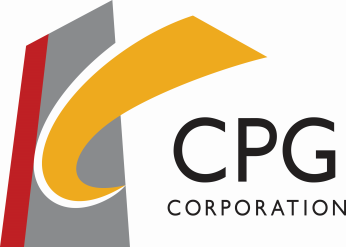Adaptive Reuse Framework for Office to Residential and Hotel Conversions: Roundtable Event Roundup and DRO Publication Launch

Over the past year, CPG’s Design and Research Office (DRO) has focused research efforts on adaptive reuse as a key strategy in decarbonising the built environment. Making the best use of existing buildings by prolonging their lifespans and adapting them to new uses, seemed to be an obvious solution. But adaptive reuse in Singapore is commonly reserved for heritage buildings, and ordinary buildings are often demolished when new development needs arise.
Prompted by the substantial amount of redevelopment that has taken place in the CBD since the URA’s CBD Incentive (CBDI) Scheme was launched in 2019, DRO’s research focused on high-rise office buildings typologies similar to those in the CBD, and whether they could be converted into residential or hotel buildings through adaptive reuse. We studied the configuration of high-rise office, residential and hotel buildings in Singapore to distil and quantify the factors that affect the feasibility of such conversions, with the objective of developing an evaluation tool that could be used to perform a quick, high-level assessment of any given office building and score them for their conversion potential. This would allow for easy benchmarking across different office buildings, enabling property owners to understand where they stand in comparison to other buildings.

Office to Residential (left) and Office to Hotel (right) Facade Transformation Study for Prudential Tower

Office to Residential (left) and Office to Hotel (right) Facade Transformation Study for Tong Eng Building
DRO’s research findings were presented in a roundtable event entitled “Adaptive Reuse Framework for Office to Residential and Hotel Conversions” on 28 February 2024 at CPG, in which a panel of experts from the architecture, building and real estate industry were invited to share their insights on the topic. A lively exchange of views ensued amongst the panellists and the audience during the discussion, with many expressing support for the adaptive reuse approach from the sustainability and placemaking perspectives, while highlighting the risks and uncertainties involved in redeveloping existing buildings.

Ar. Tan Shao Yen moderated the roundtable discussion with an esteemed panel of experts from the architecture, building and real estate fields.
Here are some takeaways from our panellists:
 Following the successful conclusion of the roundtable event, DRO produced a short-form publication on the topic of Office to Residential and Hotel Conversions to share the research with a wider audience. Our findings show that there is much potential for office conversion projects in Singapore from the design, technical and financial perspectives, especially when they are converted into hotels. By reframing existing building stock as material resources and embodied carbon repositories, we can prolong their lifespans, avoid unnecessary material wastage, and encourage creative adaptive reuse solutions.
Following the successful conclusion of the roundtable event, DRO produced a short-form publication on the topic of Office to Residential and Hotel Conversions to share the research with a wider audience. Our findings show that there is much potential for office conversion projects in Singapore from the design, technical and financial perspectives, especially when they are converted into hotels. By reframing existing building stock as material resources and embodied carbon repositories, we can prolong their lifespans, avoid unnecessary material wastage, and encourage creative adaptive reuse solutions.
DRO Publication No. 1 – Adaptive Reuse Framework for Office to Residential and Hotel Conversions can be downloaded by clicking on the image below.
This is the first of a series of design and research publications that explore various topics related to the built environment. If you would like to receive email notifications when DRO publications are launched, please join our mailing list here.




